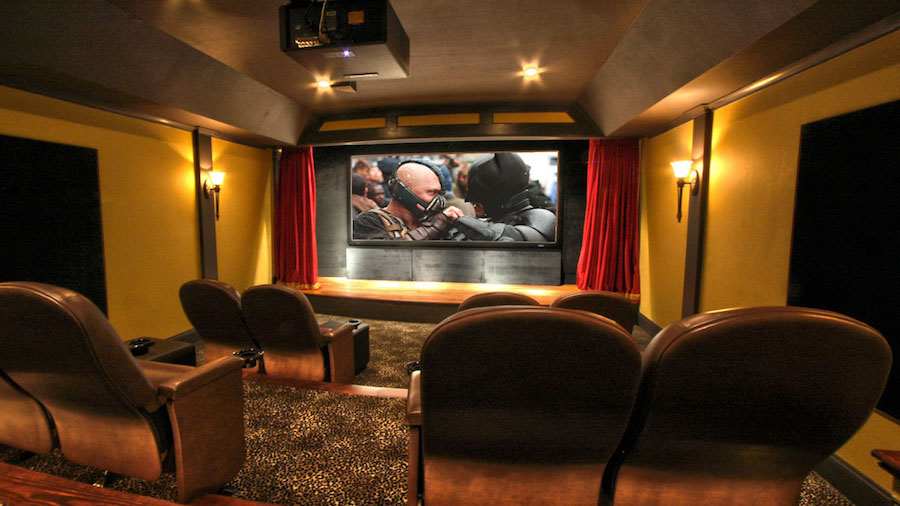Why You Should Hire an Experienced Home Theater Company
Attention to Detail Makes All the Difference

As we’ve written about at length on these blog pages, home theaters have never been more popular. The ongoing pandemic has forced the closure of live venues and movie theaters, making the home even more of a hub for entertainment. Homeowners have been reevaluating their media room and home theater installations, looking to add larger, up-to-date screens, more immersive audio, upgraded seating, and more.
Some people go about doing home projects by hiring a builder and letting them manage the project. Others might get more involved and hire the specific trades and subcontractors, overseeing a project more directly. How should you go about building or upgrading a home theater in your Roswell, GA home? Should you hire a home theater company like GHT Group? Keep reading for our take on the subject.
SEE ALSO: The Importance of Working with a Home Theater Company
The Infrastructure
Despite the prevalence of many wireless technologies, home theaters have a lot of cabling, wiring, and power requirements. Whether you have freestanding or built-in speakers, they need to be wired back to amplifiers. For high-quality speakers, that wiring might be on the thick side. For architectural speakers, wires will be run through walls and ceilings. It's far easier to do that in a major project at the right point before the drywall goes in, but it's still doable afterward. Snaking wires and cables is a process that professionals tend to do more quickly and efficiently. Power requirements should also be considered. High power amplifiers that feed multiple speakers in a Dolby Atmos configuration may need additional amps, not to mention adequate protection from surges and power conditioning for stable performance.
Projectors mounted in ceilings and along back walls also require connectivity back to source equipment and AV receivers and processors. Careful attention must be paid to cable runs; certain types like HDMI have limits on distance and may require signal extenders or other methods to facilitate the connection.
Design and Calibration
You might be surprised to learn that it's easy to make mistakes in theater design if you don't start with the basics. For example, seating will drive many decisions and design parameters in a theater. You want every seat to have an excellent view of the screen, unobstructed, and neither too close nor too far. Speaker and subwoofer placement should be designed around seating so that the sound is even, powerful, and artifact-free at every position.
Calibration for both the visuals and sound is also critical to a great cinema experience. Projectors should be calibrated for color, brightness, and the type of screen used. Movies are available in multiple formats (like 16:9 and 21:9 ratios depending on the source), and a home theater should be able to deal with those seamlessly with the right setup. Sound calibration is also essential, as immersive surround systems need careful tuning for speaker levels, bass performance, equalization, and room anomalies to sound their best.
It’s a Project
We’ve only scratched the surface of some of the details that go into a home theater. We haven’t discussed lighting, window shading, equipment control and automation, and other infrastructure. Home theaters can be big projects, like redoing a kitchen – perhaps even more complicated, depending on the theater. If you want a home cinema that rivals or betters a commercial movie theater, it takes significant planning, work and expertise.
The “HT” in GHT Group stands for home theater, and it’s been part of our company’s DNA for over 30 years. We are the go-to professionals in Roswell and metro Atlanta for the finest custom home theaters. Contact us here, or click the chat box below to quickly connect with one of our home theater experts. We look forward to working with you!